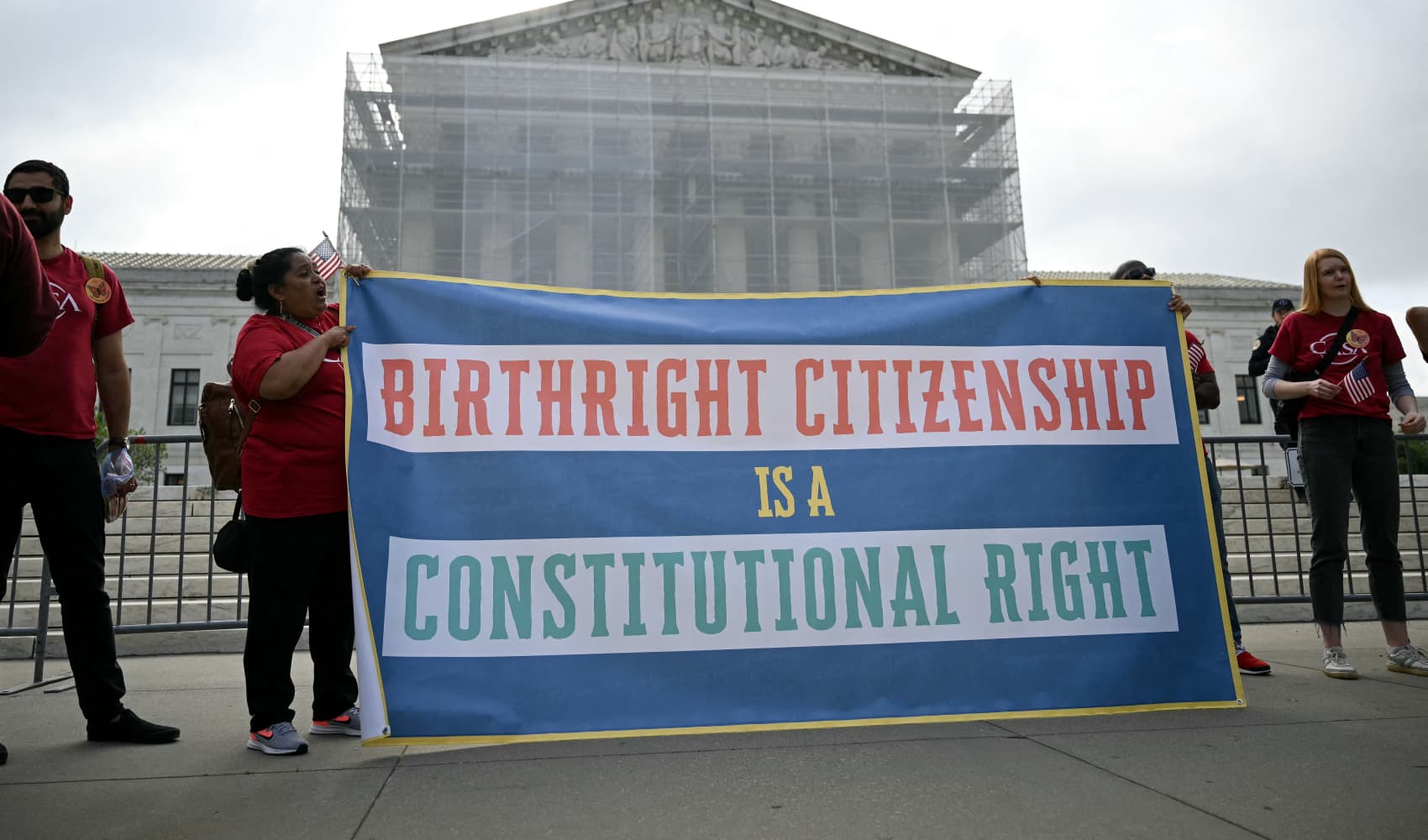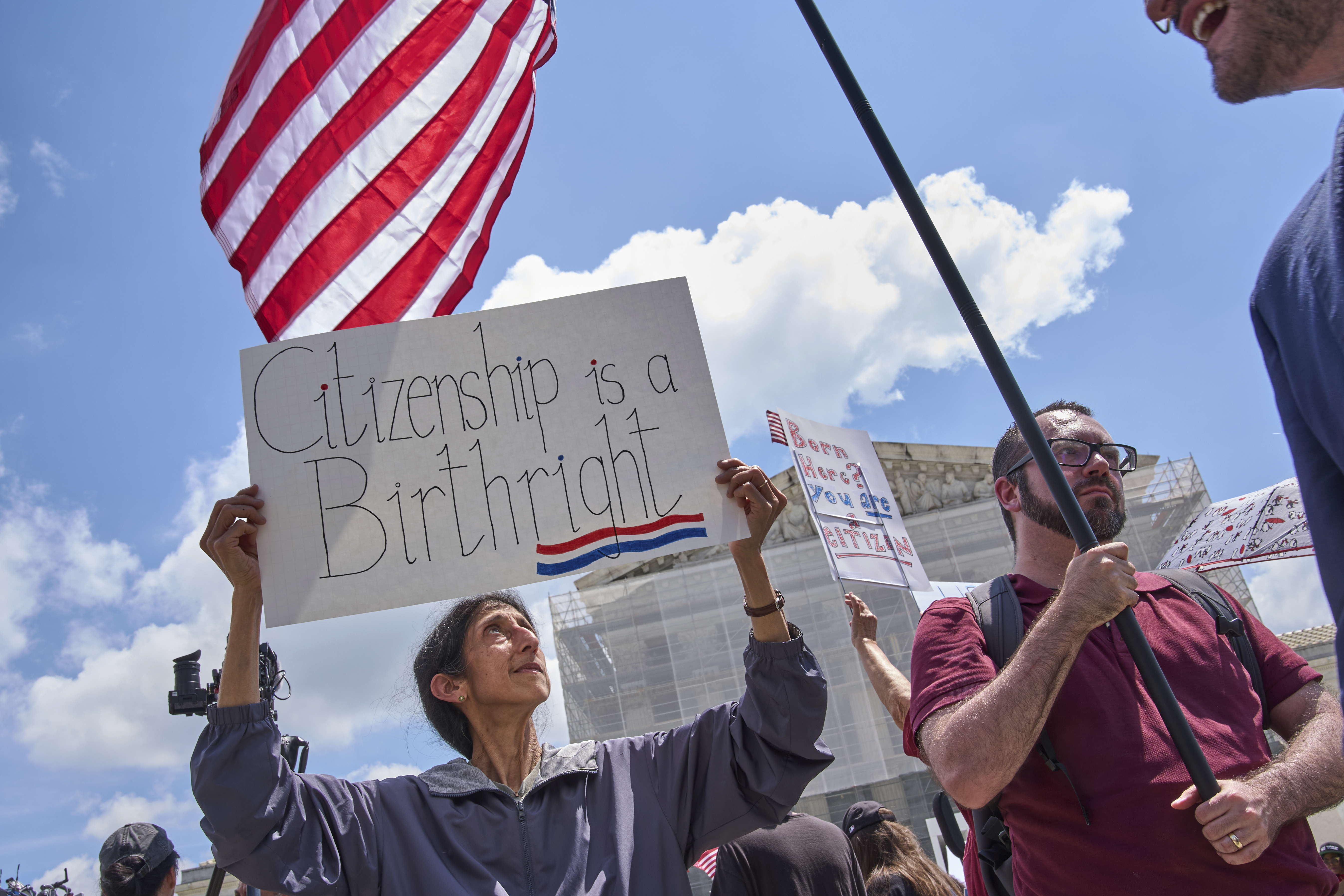Supreme Court vs. Trump: Birthright Citizenship Under Fire?
Birthright Battle: Supreme Court Justices Question Trump's Citizenship Order
Introduction: Is Birthright Citizenship Under Threat?
The hallowed halls of the Supreme Court echoed with debate recently, and the subject at hand? Nothing less than the very foundation of American citizenship. President Donald Trump's executive order, aiming to significantly curb birthright citizenship, came under intense scrutiny. But what's the big deal, and why should you care? Well, if you believe in the idea of America as a land of opportunity, then this is a conversation you can't afford to miss.
The Sotomayor Stance: Four Precedents Violated?
Justice Sonia Sotomayor, known for her sharp legal mind, didn't mince words. She directly accused the Trump administration's executive order of "violating four Supreme Court precedents." That's a pretty serious accusation. It implies that the order potentially disregards long-established legal principles upon which our nation operates.
What are these Precedents?
While the specifics of the four precedents weren't explicitly listed in the provided information, they likely relate to the 14th Amendment of the Constitution, which guarantees citizenship to all persons born or naturalized in the United States and subject to its jurisdiction. These precedents likely address:
- The meaning of "subject to its jurisdiction"
- The rights of children born to immigrants, documented or undocumented
- Previous legal challenges to birthright citizenship
- The limits of executive power in immigration matters
Solicitor General's Argument: Curbing Judicial Power
Solicitor General D. John Sauer, representing the Justice Department, presented a counter-argument. He focused on the idea that individual federal district court judges shouldn't have the power to issue national injunctions. His concern? That a single judge could effectively halt a policy with nationwide implications.
National Injunctions: A Double-Edged Sword?
Imagine a scenario: a new law is passed, but before it even takes effect, a judge in one state issues an injunction, stopping it for the entire country. Is this a fair system? Sauer would argue that it’s not. He believes this concentrates too much power in the hands of a single judge, potentially undermining the democratic process.
Trump's Executive Orders: A History of Legal Challenges
This isn't the first time a Trump administration executive order has faced legal hurdles. Many of Trump's executive actions have been challenged in court, often successfully blocked by federal judges. Why is this happening?
The Separation of Powers: Checks and Balances in Action
Think of the government as a three-legged stool: the Executive branch (President), the Legislative branch (Congress), and the Judicial branch (Courts). Each branch has its own powers, but also limitations. The judicial branch, through the power of judicial review, can check the power of the executive branch by declaring its actions unconstitutional. That's precisely what's happening here.
The 14th Amendment: The Heart of the Matter
The 14th Amendment, ratified in 1868, is the cornerstone of birthright citizenship in the United States. Its Citizenship Clause states: "All persons born or naturalized in the United States, and subject to the jurisdiction thereof, are citizens of the United States and of the State wherein they reside."
Original Intent vs. Modern Interpretation
The debate often revolves around the "original intent" of the framers of the 14th Amendment. Did they intend for it to apply to everyone born in the US, including children of undocumented immigrants? Or did they have a more limited scope in mind? This is where legal minds often clash, leading to different interpretations and, ultimately, different legal outcomes.
The Potential Impact: A Changed America?
If the Supreme Court were to uphold the Trump administration's executive order, it could dramatically reshape American society. What are some potential consequences?
Immigration Policy Overhaul
A ruling in favor of limiting birthright citizenship could lead to a significant overhaul of immigration policies. It could empower future administrations to further restrict immigration, potentially impacting millions of lives.
Economic Implications
Changes to immigration policy can have far-reaching economic consequences. Reduced immigration could affect labor markets, economic growth, and even social security systems.
Social and Cultural Changes
America's strength lies in its diversity. Limiting birthright citizenship could alter the cultural landscape of the nation, potentially leading to a less diverse and less vibrant society.
The Supreme Court's Role: An Impartial Arbiter?
The Supreme Court is tasked with interpreting the Constitution and ensuring that laws are consistent with its principles. But can the Court truly be impartial, especially in politically charged cases like this one?
The Appointment Process: Politicizing the Court?
The appointment of Supreme Court justices has become increasingly politicized in recent years. Partisan battles over nominations can raise questions about the Court's impartiality and its ability to render unbiased judgments.
The Future of Birthright Citizenship: Awaiting the Verdict
The fate of birthright citizenship in the United States now rests in the hands of the Supreme Court. The justices' decision will have profound implications for generations to come.
Possible Outcomes and Scenarios
There are several possible outcomes:
- The Court could uphold the executive order, thereby limiting birthright citizenship.
- The Court could strike down the executive order, reaffirming the existing interpretation of the 14th Amendment.
- The Court could issue a narrower ruling, addressing specific aspects of the executive order without making a sweeping decision on birthright citizenship.
Public Opinion: A Divided Nation
The issue of birthright citizenship is deeply divisive. Public opinion is sharply divided along political lines, with strong emotions on both sides.
The Moral and Ethical Dimensions
Beyond the legal arguments, there are profound moral and ethical considerations. What responsibility does a nation have to children born within its borders? What is the fairest and most just approach to immigration? These are questions that deserve serious reflection.
Looking Ahead: What's Next?
Regardless of the Supreme Court's decision, the debate over birthright citizenship is likely to continue. It's a complex issue with no easy answers, and it will require thoughtful dialogue and compromise to find a path forward.
Conclusion: A Fundamental Question of Identity
The Supreme Court's consideration of President Trump's executive order highlights a fundamental question about American identity: who belongs? The arguments presented by Justice Sotomayor and Solicitor General Sauer underscore the complexities of interpreting the 14th Amendment. The Court's ultimate decision will not only shape immigration policy but also define the very meaning of American citizenship for generations to come. The outcome will undoubtedly continue to fuel debate and shape the future of our nation.
Frequently Asked Questions
Q: What is birthright citizenship?
A: Birthright citizenship, as enshrined in the 14th Amendment of the U.S. Constitution, guarantees citizenship to almost all individuals born within the borders of the United States and subject to its jurisdiction.
Q: What was President Trump's executive order trying to do?
A: President Trump's executive order aimed to limit birthright citizenship, potentially denying citizenship to children born in the U.S. to undocumented immigrants.
Q: What are "national injunctions" and why are they controversial?
A: National injunctions are court orders issued by a single judge that halt a policy or law nationwide. They are controversial because they give a single judge significant power to impact policy for the entire country.
Q: What is the role of the Supreme Court in this debate?
A: The Supreme Court's role is to interpret the Constitution and determine whether the executive order is consistent with its provisions, particularly the 14th Amendment's Citizenship Clause.
Q: What are the potential consequences if birthright citizenship is limited?
A: Limiting birthright citizenship could lead to significant changes in immigration policy, affect labor markets and the economy, and alter the social and cultural landscape of the United States.


